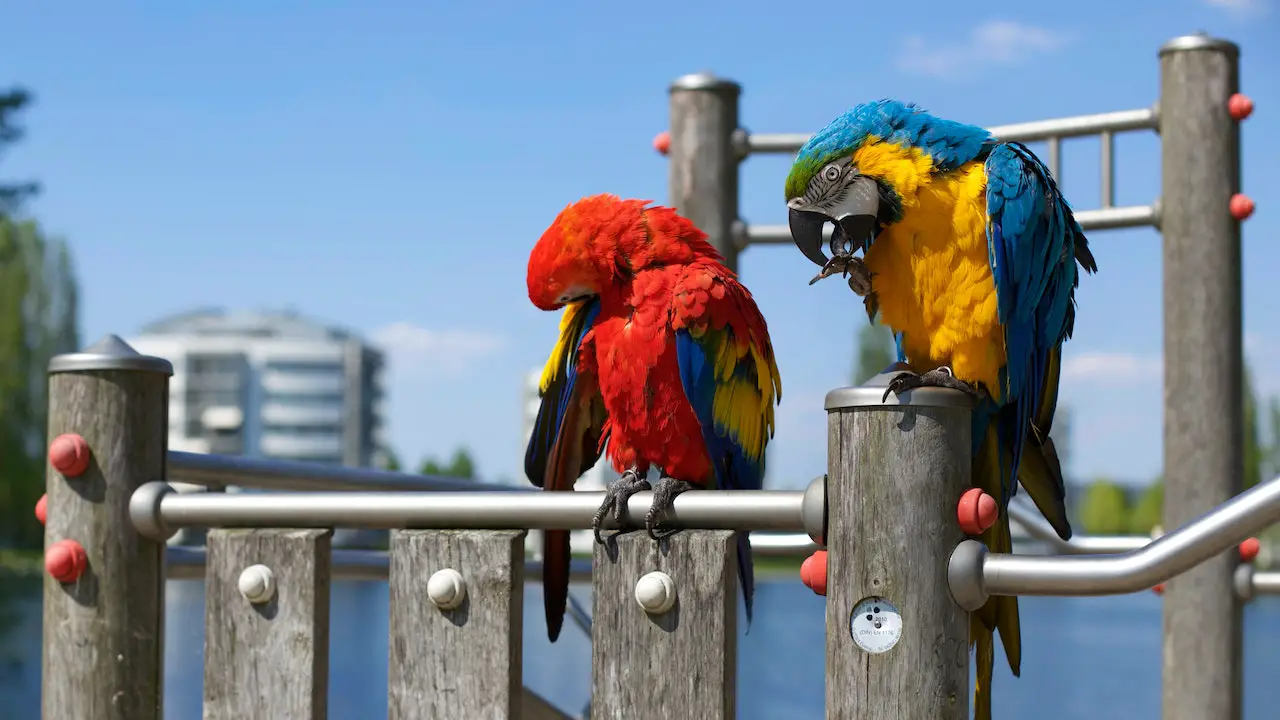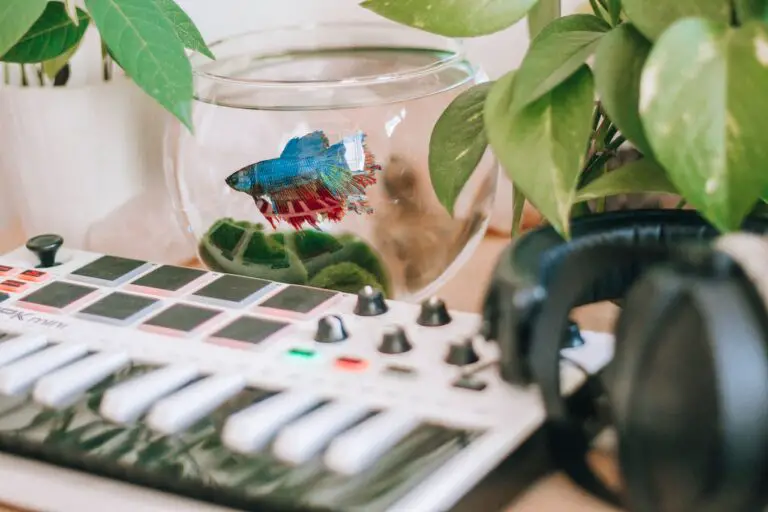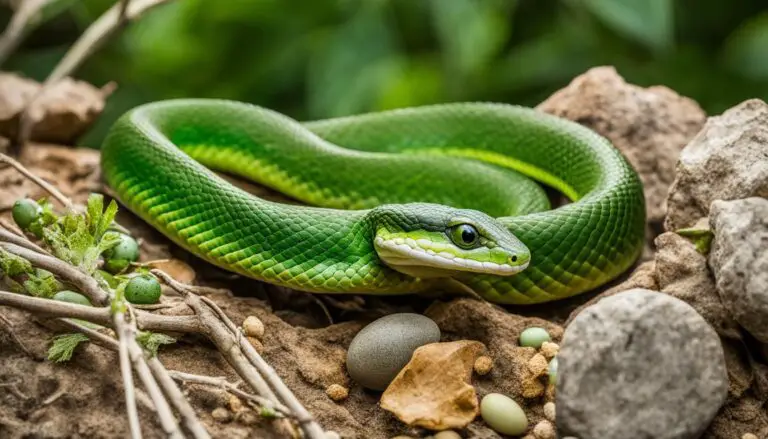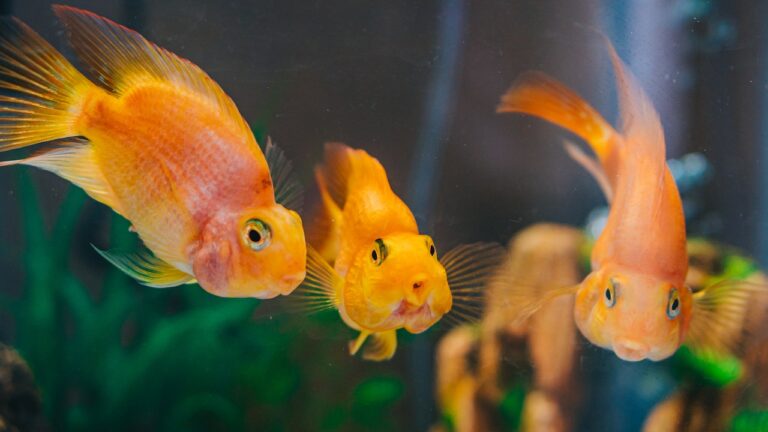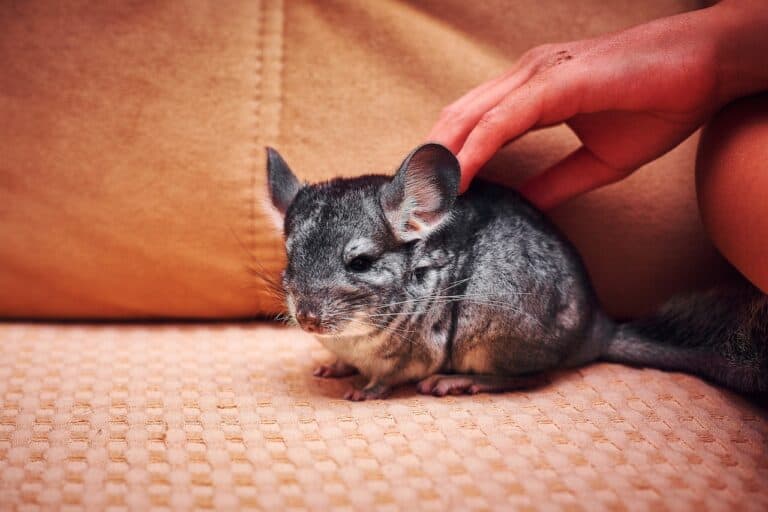Selecting the Perfect Exotic Pet Bird: Tips for Choosing the Right One
Owning an exotic pet bird can be a rewarding and fulfilling experience.
Exotic birds come in a wide range of species, each with its unique characteristics, care requirements, and personalities.
However, choosing the right exotic bird for your lifestyle and preferences is crucial to ensure a harmonious bond between you and your feathered friend.
In this article, we will provide you with valuable tips and insights on how to select the perfect exotic pet bird that suits your needs.
Key Takeaways:
- Before getting an exotic bird, consider your long-term commitment, budget, and the legalities involved.
- Research different exotic bird species, considering size, temperament, vocalization, and lifespan.
- Evaluate your lifestyle and available time for social interaction and mental stimulation.
- Provide a spacious cage, environmental enrichment, and a well-ventilated location for your bird.
- Understand the financial commitment, including initial setup costs and ongoing expenses.
- Interact and bond with your bird daily, establishing trust and respecting boundaries.
- Find a qualified avian veterinarian and prioritize regular check-ups and preventative care.
- Consider adoption from a reputable rescue organization and learn about adoption requirements.
- Use positive reinforcement training and socialize your bird for a well-adjusted companion.
- Provide a well-balanced diet, including fresh foods, high-quality pellets, and occasional treats.
- Avoid common mistakes like neglecting socialization, improper diet, and lack of veterinary care.
- Regularly groom your bird, including nail and beak trimming, wing clipping (if desired), and feather care.
- Offer mental stimulation through toys, foraging opportunities, training sessions, and environmental enrichment.
- Follow travel regulations, use a secure travel carrier, acclimate your bird, and pack essential supplies.
- Choosing the right exotic bird requires careful consideration and commitment to their well-being.
Remember, each bird is unique, and providing love, care, and attention will create a rewarding bond with your exotic pet bird.
What to Consider Before Getting an Exotic Bird
Before bringing home an exotic bird, it’s essential to consider several factors. Here are some key points to think about:
- Ensure that owning a bird is legal in your area: Research local laws and regulations regarding pet birds to ensure you can legally keep one. Some areas may have restrictions or permit requirements for certain bird species.
- Assess your long-term commitment to a bird: Exotic birds can have long lifespans, sometimes exceeding 50 years. Consider whether you are prepared for the commitment involved in caring for a bird for its entire life. It’s important to have a plan in place for the bird’s care in case of unforeseen circumstances or if you are no longer able to provide care.
- Evaluate your budget: Exotic birds require proper nutrition, regular veterinary care, and suitable housing. Take into account the costs of food, toys, cage, and potential medical expenses. It’s also essential to have an emergency fund in case of unexpected veterinary costs.
Researching Different Exotic Bird Species
There are numerous exotic bird species to choose from, each with its unique traits.
Take the time to research and learn about different species.
Consider factors such as:
- Size: Exotic birds vary significantly in size, from small finches to large macaws. Smaller birds may be better suited for those with limited space, while larger birds require more room to thrive.
- Temperament: Different species have different temperaments. Some are known for their gentle and affectionate nature, while others may be more independent or prone to aggression. Research the temperament of the species you are interested in and consider whether it matches your lifestyle and preferences.
- Vocalization: Birds have different vocalization levels and abilities. Some species are known for their impressive ability to mimic human speech, while others may have more limited vocal capabilities. Consider whether you are comfortable with the vocalization level of the species you are considering.
- Lifespan: The lifespan of exotic birds varies greatly. Consider how long you are willing to commit to a bird, as some species can live for several decades. It’s essential to be prepared for the long-term care and commitment required.
Evaluating Your Lifestyle and Available Time
Consider your daily routine and the amount of time you can dedicate to your pet bird.
Some points to think about:
- Social interaction: Exotic birds are highly social creatures and require regular interaction with their human caregivers. Evaluate how much time you can spend actively engaging with your bird each day. Birds that are left alone for long periods can develop behavioral issues due to boredom and lack of socialization.
- Mental stimulation: Birds need mental stimulation to prevent boredom and behavioral issues. Consider whether you have the time and energy to provide mental enrichment through toys, puzzles, and interaction. Birds thrive when given opportunities to explore, forage, and engage in activities that mimic their natural behaviors.
- Noise tolerance: Some exotic bird species are louder than others. Assess your tolerance for noise and consider the impact of a bird’s vocalizations on your living situation and neighbors. It’s essential to choose a species that matches your comfort level with noise.
Assessing Space and Housing Requirements
Exotic birds need sufficient space to move around comfortably.
Some important considerations:
- Cage size: Ensure you have enough space for an appropriately sized cage. The cage should allow the bird to fully stretch its wings, hop from perch to perch, and engage in natural behaviors. Provide a cage that is spacious enough for the bird to move around and flap its wings without restrictions.
- Bar spacing: Make sure the cage bars are spaced appropriately for the size of your bird to prevent injury or escape. Smaller species may require narrower bar spacing to prevent them from getting their heads or bodies stuck between the bars.
- Environmental enrichment: Provide perches of different sizes and materials, toys, and activities that promote physical exercise and mental stimulation. Birds need a variety of perches to maintain foot health and exercise their feet muscles.
- Consider the placement of the cage: Place the cage in a location that is well-ventilated, away from drafts and direct sunlight, and free from potential hazards such as toxic fumes or extreme temperature fluctuations. Avoid placing the cage in a busy area where the bird may feel overwhelmed or stressed.
Understanding the Financial Commitment
Owning an exotic bird involves financial responsibilities.
Keep in mind:
- Initial setup costs: This includes the cost of the bird, cage, perches, toys, and other essential supplies. Depending on the species and quality of supplies, the initial setup costs can vary significantly.
- Ongoing expenses: Budget for high-quality bird food, treats, regular veterinary check-ups, and potential unexpected medical costs. Some species may require specialized diets or supplements, which can add to the ongoing expenses.
- Additional costs: Consider expenses such as grooming services, specialized dietary supplements, and potential professional training or behavior consultations. It’s important to be prepared for unexpected costs that may arise throughout the bird’s life.
Interacting and Bonding with Exotic Birds
Exotic birds thrive on social interaction and bonding with their human companions.
Here are some tips:
- Daily interaction: Set aside dedicated time each day to spend with your bird, engaging in activities such as talking, training, and gentle handling. Birds are highly social and crave attention from their caregivers.
- Establish trust: Building trust with your bird is crucial for a strong bond. Offer treats, speak softly, and use positive reinforcement training methods to create a positive association with your presence.
- Respect boundaries: Pay attention to your bird’s body language and signals, ensuring positive and stress-free interactions. Give the bird space when needed and allow it to initiate contact when it feels comfortable.
Health and Veterinary Care
Maintaining your exotic bird’s health is paramount.
Some important points to consider:
- Find a qualified avian veterinarian: Look for a veterinarian experienced in treating exotic birds. Regular check-ups are essential to detect and prevent potential health issues. Birds are masters athiding signs of illness, so having a knowledgeable avian veterinarian can help ensure early detection and treatment.
- Vaccinations and preventative care: Follow your veterinarian’s recommendations for vaccinations and preventative treatments for parasites, such as mites or worms. Preventative care can help protect your bird’s overall health and well-being.
- Signs of illness: Familiarize yourself with common signs of illness in birds, such as changes in appetite, behavior, feather appearance, or droppings. Being attentive to any changes in your bird’s behavior or physical condition can help identify potential health issues early on.
- Emergency care: Identify an avian emergency clinic or veterinarian that is available outside regular office hours in case of emergencies. Having a plan in place for emergency situations can provide peace of mind and ensure prompt care for your bird.
Exotic Bird Adoption vs. Purchasing
Consider the option of adopting an exotic bird from a reputable rescue organization or animal shelter.
Some considerations:
- Adoption benefits: Adopting a bird can provide a loving home to a bird in need and may be a more cost-effective option compared to purchasing from a breeder or pet store. Additionally, many adopted birds have already been socialized and may come with some basic training.
- Adoption process: Research and visit local bird rescues or shelters to learn about available birds and their background. Understand the adoption requirements and process, which may involve interviews, home visits, and adoption fees. A reputable rescue organization will prioritize the well-being of the bird and ensure a good match with potential adopters.
- Purchasing considerations: If purchasing from a breeder or pet store, choose a reputable source that prioritizes the health and welfare of their birds. Ask for references, visit the facility if possible, and ensure the birds are raised in a clean and caring environment. Responsible breeders should be knowledgeable about the specific species they breed and be willing to provide ongoing support and guidance.
Training and Socialization
Training is an essential aspect of owning an exotic bird.
Some tips:
- Positive reinforcement: Use rewards, such as treats or praise, to reinforce desired behaviors. Positive reinforcement training methods are effective and help build trust and cooperation.
- Basic commands: Teach your bird basic commands, such as stepping onto your hand or going into its cage on command. Start with simple commands and gradually build up to more complex behaviors. Consistency and patience are key to successful training.
- Socialization: Expose your bird to different people, environments, and situations to help them develop confidence and adaptability. This includes introducing them to new experiences, objects, and noises. Proper socialization helps prevent fear-based behaviors and promotes a well-adjusted bird.
Exotic Bird Diet and Nutrition
Provide a well-balanced diet for your exotic bird.
Consider the following:
- Species-specific diet: Different bird species have different nutritional requirements. Consult with an avian veterinarian or avian nutritionist to determine the specific dietary needs of your bird’s species. For example, some birds require more protein in their diet, while others may need a higher percentage of fruits and vegetables.
- Variety of fresh foods: Offer a wide variety of fresh fruits, vegetables, and leafy greens. These provide essential vitamins, minerals, and antioxidants. Experiment with different foods to see what your bird enjoys and ensure a well-rounded diet.
- High-quality pellets: Choose high-quality, species-appropriate pellets as a staple part of the diet. Pellets provide balanced nutrition and can be supplemented with other foods. Select pellets that are free from artificial additives and colors.
- Occasional treats: Offer occasional treats such as nuts, seeds, or small amounts of healthy human foods as a special reward. However, be cautious not to overdo treats, as they should only make up a smallportion of the overall diet. Treats should be given in moderation to prevent weight gain and imbalances in the bird’s nutritional intake.
- Fresh water: Ensure a constant supply of clean, fresh water for your bird to drink. Change the water daily and clean the water dish regularly to prevent bacterial growth. Some birds enjoy misting or bathing, so providing a shallow dish of water or a mister can also contribute to their overall well-being.
Common Mistakes to Avoid
To ensure the well-being of your exotic bird, avoid common mistakes such as:
- Neglecting socialization and mental stimulation: Exotic birds require social interaction and mental enrichment to thrive. Lack of stimulation can lead to boredom, stress, and behavior problems. Make sure to dedicate time each day for play, interaction, and environmental enrichment activities.
- Providing an improper diet or neglecting nutritional needs: Poor nutrition can lead to health issues. It’s important to provide a balanced and species-appropriate diet to meet your bird’s specific nutritional requirements. Avoid feeding your bird foods that are toxic or harmful to its species.
- Not seeking regular veterinary care: Regular check-ups are crucial for monitoring your bird’s health and detecting potential issues early on. Establishing a relationship with an avian veterinarian is important to ensure that your bird receives the necessary preventive care and prompt treatment if needed.
- Overlooking the importance of a clean and stimulating environment: Cleanliness is essential to prevent the spread of diseases, and a stimulating environment helps keep your bird mentally and physically active. Regularly clean the cage, perches, toys, and food dishes to maintain a hygienic environment. Rotate and introduce new toys, puzzles, and foraging opportunities to keep your bird engaged and stimulated.
Grooming and Maintenance
Regular grooming is necessary for your exotic bird’s health.
Consider the following:
- Nail and beak trimming: Regularly trim your bird’s nails to prevent overgrowth and discomfort. Beak trims may also be necessary if the beak becomes excessively long. It’s important to have proper training and tools to perform these tasks safely, or seek professional help from an avian veterinarian or experienced bird groomer.
- Wing clipping: If you choose to clip your bird’s wings, consult with a professional or avian veterinarian to ensure it is done safely and correctly. Wing clipping can prevent full flight and should be done conservatively, taking into account the bird’s safety and well-being.
- Feather care: Observe your bird’s feathers for signs of damage, excessive molting, or abnormal feather growth. Provide opportunities for bathing or misting to promote healthy feathers and ensure the bird’s plumage remains in good condition.
- Cage and accessory cleaning: Regularly clean the cage, perches, toys, and food dishes to maintain a hygienic environment and prevent the buildup of bacteria or parasites. Use bird-safe cleaning solutions and rinse thoroughly to remove any residue.
Providing Mental Stimulation
Exotic birds require mental stimulation to prevent boredom and behavioral problems.
Some ideas:
- Toys: Offer a variety of toys that provide different textures, colors, and challenges. Birds have a natural inclination to explore and manipulate objects, so provide toys that encourage their natural behaviors. Rotate toys regularly to keep them interesting and introduce new ones periodically.
- Foraging opportunities: Encourage natural foraging behaviors by providing toys or puzzles that require your bird to work for its food. This can include foraging wheels, treat-dispensing toys, or hiding food in different parts of the cage. Foraging engages the bird’s mind and provides a source of mental stimulation.
- Training sessions: Engage your bird in positive reinforcement training sessions to keep their mind active and build a stronger bond with them. Teach your bird new tricks, commands, or behaviors using rewards and praise. Training sessions not only provide mental stimulation but also enhance communication and trust between you and your bird.
- Environmental enrichment: Create an engaging environment with perches of different sizes and materials, hiding spots, and opportunities for exploration. Offer branches, ropes, ladders, and swings for your bird to climb, hang, and play on. Providing a variety of textures, colors, and shapes in their surroundings can stimulate their senses and promote mental well-being.
Traveling with Your Exotic Bird
If you plan to travel with your exotic bird, consider the following:
- Check travel regulations: Research and comply with any travel regulations, permits, or documentation required for transporting your bird. Some countries or states may have specific requirements for bringing birds across borders or traveling with them within certain areas.
- Travel carrier: Invest in a secure and appropriately sized travel carrier that provides comfort and safety during journeys. Ensure the carrier has good ventilation, is escape-proof, and offers enough space for the bird to move comfortably.
- Acclimate your bird: Gradually introduce your bird to the travel carrier and take short trips to help them get accustomed to the experience. This will help reduce stress and anxiety when it comes time for longer journeys.
- Carry essential supplies: Pack food, water, familiar toys, and any necessary medications for your bird’s comfort during travel. Familiar items can provide a sense of security and make the journey less stressful for your feathered friend.
Conclusion
Choosing the right exotic bird is a significant decision that requires careful consideration.
By thoroughly researching different species, evaluating your lifestyle, and understanding the responsibilities and commitments involved, you can make an informed choice.
Remember that owning an exotic bird is a long-term commitment, and providing proper care, nutrition, social interaction, and mental stimulation are crucial for the well-being of your feathered companion.
Enjoy the journey of building a bond with your exotic pet bird and cherish the unique joys they bring to your life.
FAQs
Are exotic birds high maintenance pets?
Exotic birds require regular attention, socialization, mental stimulation, and proper care, making them moderately high maintenance pets.
However, with proper knowledge, preparation, and commitment, they can become wonderful companions.
Can I teach my exotic bird to talk?
Certain exotic bird species, such as African greys and Amazon parrots, are known for their ability to mimic human speech.
While not all birds will learn to talk, many can be trained to imitate words and phrases with patience and consistent training.
How long do exotic birds live?
The lifespan of exotic birds varies depending on the species.
Smaller parakeets and lovebirds can live up to 15-20 years, while larger species like macaws and cockatoos can live well over 50 years with proper care.
What are the best toys for exotic birds?
Exotic birds enjoy a variety of toys that provide mental stimulation and physical exercise.
Some popular options include puzzle, foraging, chewable, and interactive toys that encourage problem-solving and play.
Can I keep an exotic bird if I have allergies?
If you have allergies, it’s essential to consider the potential impact of bird dander on your symptoms.
Some individuals with allergies may experience worsened symptoms around birds.
It’s recommended to spend time around birds before bringing one into your home to assess your sensitivity.
Peter Stones is the founder of Exotic Pets Place, the leading online resource for exotic pet care information.
With over 10 years of hands-on exotic pet ownership experience, he is deeply passionate about sharing his expertise to help others properly care for their unusual pets.
When he's not writing extensively researched articles or connecting with fellow exotic pet enthusiasts worldwide, you can find Peter at home tending to his own beloved menagerie of exotic animals.

